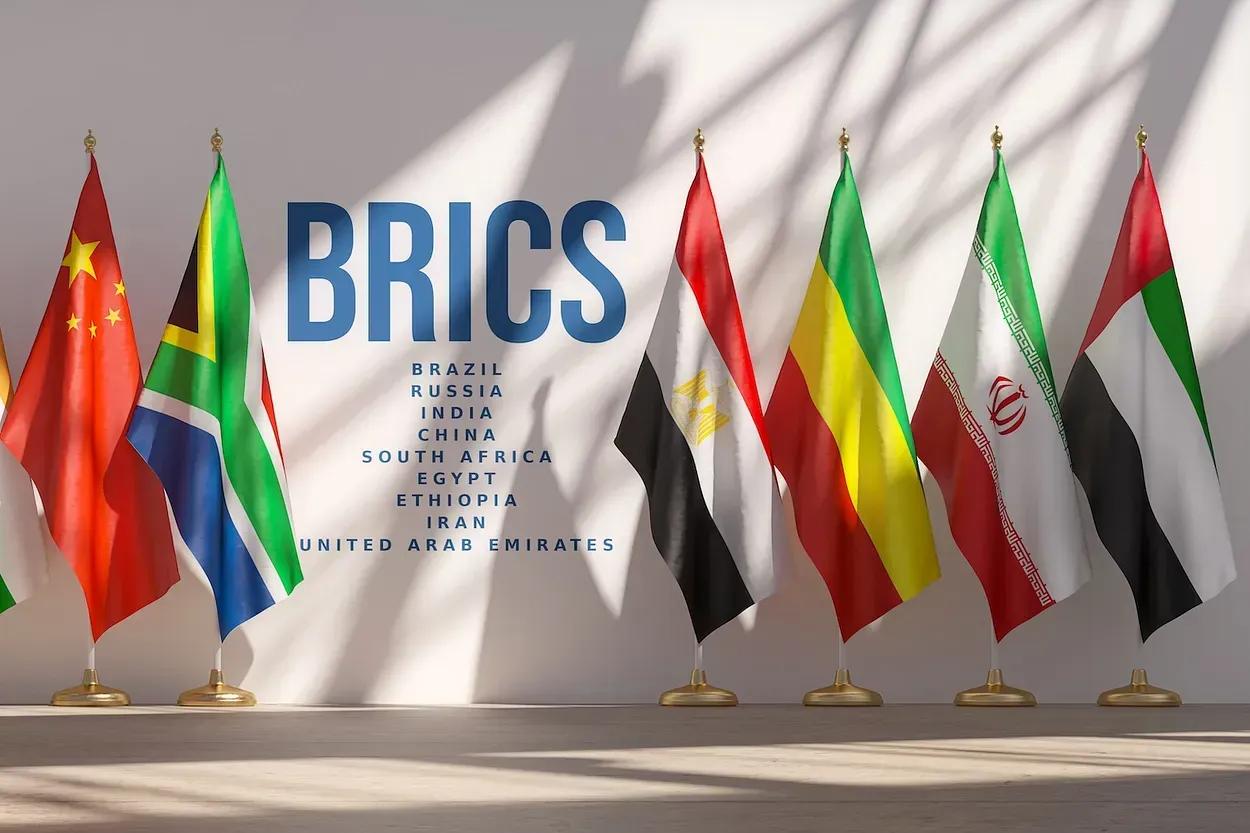Jesús Daniel Romero from Miami Strategic Intelligence Institute for FinGurú
Introduction
What started as an emerging economic bloc —BRICS— has transformed into an ideological platform used by certain Latin American governments to promote radical and confrontational narratives. In its 2025 edition, held in Brasilia, the forum was the stage for an anti-Israel speech by Brazilian President Luiz Inácio Lula da Silva, ambiguous statements about Islamist terrorism, and a complicit silence regarding actors like Iran, Hamas, and Hezbollah.
Latin America is not immune to Islamist terrorism. The attacks against the Israeli embassy (1992) and AMIA (1994) in Buenos Aires, which left over 100 dead, were attributed to Hezbollah with logistical support from the Iranian regime. However, several governments have tightened ties with Tehran, ignoring this legacy of violence.
This trend does not represent the entire regional left, but it evidences an ideological current that has adopted the Iranian regime's anti-Western narrative and projected it in multilateral forums.
II. Iran and Latin America: An Ideological and Logistical Expansion
The relationship between Caracas and Tehran was consolidated with Hugo Chávez and deepened with Nicolás Maduro. In June 2022, both countries signed a 20-year cooperation plan encompassing oil, petrochemicals, defense, agriculture, and culture. The agreement also includes technical assistance for the energy industry and regular flights between Caracas and Tehran (Reuters, 2022).
Additionally, Iran has established drone factories in Venezuela, transferred Iranian-designed missile boats—used by Venezuela to threaten Guyana—and deployed military advisors to retrain personnel on the F-16 program. Iranian technicians have also worked at the El Palito and Amuay refineries.
In February 2023, Lula's government authorized the docking of two Iranian warships—the IRIS Dena and the IRIS Makran—in Rio de Janeiro, despite warnings from the U.S. government about Iran's connections to terrorist activities and proliferation (Reuters, 2023).
III. Symbolic Support and Discursive Complicity with Hamas and Hezbollah
Venezuela and Nicaragua have openly expressed support for Hamas, describing its attacks as “legitimate resistance.” Lula, for his part, has avoided directly condemning Hamas and has characterized the Israeli response in Gaza as “genocidal.” These positions overlook the direct responsibility of terrorist groups in attacks against civilians and the use of humanitarian infrastructure for military purposes.
The absence of firm or balanced condemnations symbolically legitimizes extremist organizations and contributes to a narrative that justifies violence as a form of political struggle.
IV. Strategic Risks for Latin America
The Iranian penetration in Latin America poses a strategic challenge on multiple fronts:
Regional militarization: drones, military advisors, Iranian defense technology, and joint exercises threaten the hemispheric balance.
Normalization of the Iranian regime: naval and diplomatic visits serve as a legitimization mechanism for a sanctioned regime.
Deterioration of hemispheric relations: Brazil and Venezuela face tensions with the U.S. and the EU due to their closeness to Tehran.
Expansion of illicit networks: Hezbollah continues to operate money laundering, smuggling, and terrorism financing structures in the region, particularly in the Triple Border, as demonstrated by “Project Cassandra” (DEA, 2016).V. The Warning from SOUTHCOM and the U.S. Congress
The commanders of the U.S. Southern Command (SOUTHCOM) and Northern Command (NORTHCOM) warned Congress about the Iranian expansion. General Laura J. Richardson (2024) and Admiral Alvin Holsey (2025) pointed out that Iran seeks to strengthen strategic alliances with authoritarian governments to establish logistical, diplomatic, and operational presence in the Americas (SOUTHCOM, 2024; SOUTHCOM, 2025).
In parallel, the U.S. Congress introduced the bill S.842—“No Hezbollah in Our Hemisphere Act”—to limit Hezbollah's activities and prevent its financing through transnational criminal networks (U.S. Senate, 2025).
VI. Conclusion and Strategic Recommendations
The relationship between Iran and certain Latin American governments cannot be interpreted as diplomatic neutrality. It represents an active relaimation of a regime sanctioned for terrorism, with real impacts on regional security.
Recommendations:
Incorporate democratic and transparency requirements into BRICS and CELAC.
Strengthen counter-terrorism cooperation mechanisms, especially in the Triple Border.
Establish institutional limits on agreements with countries sanctioned for terrorism.
Promote a coherent diplomatic narrative that differentiates legitimate political support from complicity with violent extremism.References (APA 7)
● Reuters. (2022, June 11). Iran and Venezuela sign 20-year cooperation plan. https://www.reuters.com/world/iran-venezuela-sign-20-year-cooperation-plan-state-tv-2022-06-11/
● Reuters. (2023, February 27). Brazil allows two Iranian warships to dock in Rio despite U.S. pressure. https://www.reuters.com/world/brazil-allows-two-iranian-warships-dock-rio-despite-us-pressure-2023-02-27/
● U.S. Department of Defense. (2025, February 13). Posture of U.S. Northern Command and U.S. Southern Command: Testimony before the Senate Armed Services Committee [Admiral Alvin Holsey]. https://www.southcom.mil/Media/Special-Coverage/SOUTHCOMs-2025-Posture-Statement-to-Congress/
● U.S. Southern Command. (2024, March 12). SOUTHCOM Posture Statement to Congress [General Laura J. Richardson]. https://www.southcom.mil/Media/Special-Coverage/SOUTHCOMs-2024-Posture-Statement-to-Congress/
● DEA. (2016, February 1). DEA and European authorities uncover massive Hizballah drug and money laundering scheme. https://www.dea.gov/press-releases/2016/02/01/dea-and-european-authorities-uncover-massive-hizballah-drug-and-money
U.S. Senate. (2025). S.842 – No Hezbollah in Our Hemisphere Act. https://www.cbo.gov/publication/61416
Jesús Daniel Romero is a Retired Commander of U.S. Naval Intelligence and has also served in prominent diplomatic missions representing his country.
He is a Co-Founder and Senior Fellow at the Miami Strategic Intelligence Institute, and the author of the Amazon bestseller "Final Flight: The Queen of Air."
He is a columnist for Diario Las Américas in Miami and a regular consultant for media outlets in Florida, on subjects related to his specialty.

Comments